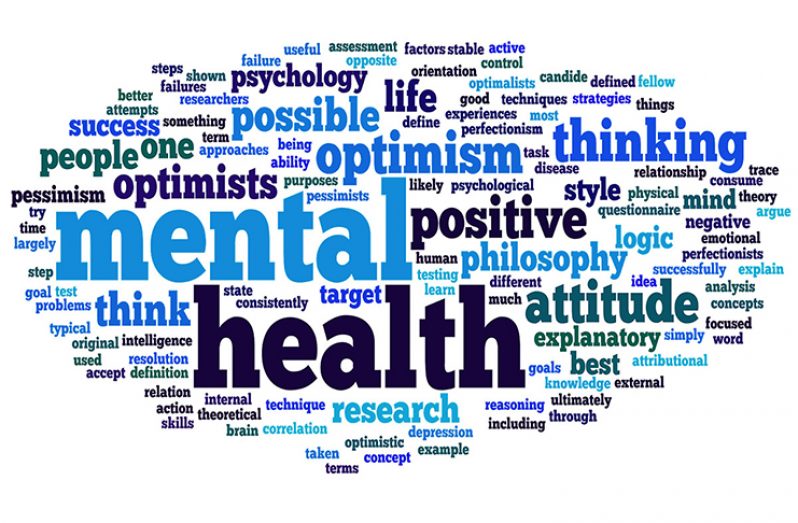– some 100 teachers to be trained to detect mental health issues in students
TEACHERS at some 100 secondary schools, beginning by the end of the last quarter, are to be trained to identify early mental health issues in adolescents.
Director of the Public Health Ministry’s Mental Health Unit, Dr Util Richmond-Thomas, told the Guyana Chronicle on Sunday that having trained other professionals, the unit believes that it is time for teachers to get on board.
“We’ve trained a number of health care workers all the time, we’ve trained doctors and nurses and so on, but the next group we aim to move to are the teachers, because we feel that the teachers should know how to identify the children who are in distress early, so that they can get the intervention early.
“Then we can teach them the necessary coping skills, we can intervene with the necessary treatment early, so that our children can have a bright future and can develop the resilience that they need to develop before they actually go out into the world and actually need it,” Richmond-Thomas said.
Without waiting for the child to approach teachers about their mental issues, Richmond-Thomas hopes that with the right training, teachers would be able to observe these challenges though a trained eye.
Meanwhile, secondary schools have been identified as the main target group as the Mental Health Unit has recognised children within the age group are often the ones with the most urgent need.
COLLABORATION
To see a successful project, the unit will be collaborating with the Pan American Health Organisation/World Health Organisation (PAHO/WHO) which will provide the training.
The initial goal is to begin in Region Four by establishing at least one focal point in each school as the project expands to other regions. Region Four has the largest population.
“The content has already been delivered to us for Child Adolescent Mental and Behavioural Disorder which is from the United Nation’s arm, the Pan American Health Organisation/World Health Organisation and the trainers are already there in the system that were trained by PAHO/WHO, so it’s just to include the teachers as another sub group,” Richmond-Thomas explained.
Being yet in the planning stage, the cost for the entire project has not yet been ascertained, but she noted that it will be covered by the Public Health Ministry’s Mental Health Unit.
Statistics on Guyana show that some 15 to 20 per cent of both adolescents and adults in the local population will suffer some form of mental illness throughout their lifetime.
However, with collective efforts in the country, this figure has been gradually reducing.
In 2012, a WHO report indicated that Guyana had a suicide rate of 44.2 per 100,000 people, while in 2014, Guyana’s National Mental Health Action Plan reported a baseline suicide rate of 34.7 deaths per 100,000.
By 2017, this data stood at 24.63 within the same bounds.
Speaking to some of the negative practices in dealing with persons with mental issues still existing in society, Richmond-Thomas said: “That is slowly being dispelled with the education and awareness that we’re doing. Some persons are still doing that, but as we go forward with our messages, we hope that, that will be eradicated and persons will become more aware of the right way of dealing with persons who are having these issues.”
FOLLOW-UP TRAINING
Meanwhile, other projects being conducted by the unit will see Guyana Sugar Corporation (GuySuCo) staffers receiving follow-up training in mental health in some regions.
This project began back in January 2018 as a four-day programme which saw participation from estates, including Rose Hall, Skeldon, East Demerara, Wales and Uitvlugt.
“The persons who actually went through the training they were very grateful, because now they have the tools to intervene at some level for persons that they see in need of some intervention for the mental health issues,” Richmond-Thomas said, speaking of the pervious training.
At the same time, the unit’s self-harm screening tool launched in 2017 is still ongoing and is being accredited for significant success in the area of mental health .
“That is going to be going on indefinitely. It is going very well and I think it is what was responsible for the reduction in our suicide rate, because we know the strongest predictor of future suicide is self-harm, because these persons practise until they finally get the courage to do the final thing and if we can get them while they’re practising, get the necessary intervention for them at that stage, it won’t lead to suicide.
“So, we have been trying very hard with those persons. We have mental health workers who are actually deployed to hospitals and as these persons come in with self-harm, we ensure that they get the help that they need while our social workers follow up with them in communities on a long-term basis until they’re no longer at risk. We ensure they’re keeping their commitments with the psychologist and psychiatrist and so on. So, this is what has been significantly contributing to our successes and that’s going to continue for a long time as it becomes a part of the system,” Richmond-Thomas said.




.png)









